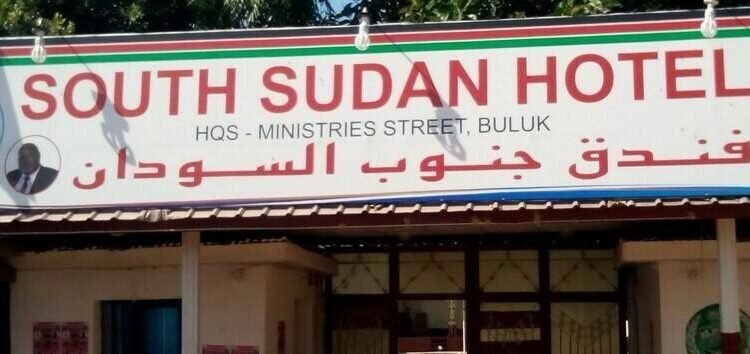The Government of the Republic of South Sudan has concluded a landmark out-of-court settlement with 32 hotel and apartment operators in Juba.
This resolves a long-standing legal dispute that was before the East African Court of Justice (EACJ).
The amicable agreement, announced by the Pan-African Law Chambers (PALC) early Tuesday, is being hailed as a major step forward for the country’s commitment to the rule of law, constitutionalism, and the protection of investor rights.
PALC law firm in its declaration statement noted that the settlement was reached between the Ministry of Justice and Constitutional Affairs, representing the government, and the affected businesses led by World Focus International Hotel.
The legal case stemmed from outstanding payments for accommodation services provided to the National Transitional Committee (NTC), and the resolution brings an end to years of uncertainty for the hospitality sector.
Mr. Tesfay Abraham, CEO of Radas Hotel Hai Neem and a representative of the Hotels Association of South Sudan, described the agreement as “amicable and forward-looking.”
He emphasized that the outcome reinforces both national and international investor confidence in South Sudan’s legal system.
“We are deeply encouraged by this outcome, it reflects South Sudan’s institutional maturity and its commitment to honoring obligations under both national and international law.” Abraham stated.
Mr. Joseph Chol Akot, CEO of Referendum Hotel, echoed this sentiment, calling it a historic moment for the hospitality sector and the wider business community.
He praised the government for its “spirit of fairness” and commended the legal counsel, Senior Counsel Wani Santino Jada of M/S Pan African Law Chambers LLP, for his pivotal role in achieving the resolution.
Gabriel Mabior Chiping, Secretary General of the Hotel and Catering Association of South Sudan, highlighted the collaborative nature of the resolution.
“This resolution is not just a legal victory, but a powerful symbol of what collaboration between government and the private sector can achieve when guided by the constitution and rule of law,” he said.
The settlement, facilitated by the Minister of Justice and Constitutional Affairs, is seen as a demonstration of the government’s preference for constitutional and lawful solutions over protracted litigation.
Legal experts and civil society organizations have welcomed the agreement as a progressive precedent for future public-private collaborations.
According to a press release, this outcome signals South Sudan’s readiness to conduct business with a focus on justice, transparency, and respect for private enterprise.
It reinforces the country’s ongoing institutional transformation and its commitment to building a governance framework rooted in legal accountability.
As the implementation of the agreement moves forward, stakeholders remain optimistic that this landmark moment will foster deeper cooperation between government institutions and private actors, which is considered an essential foundation for sustainable economic development and national progress.












